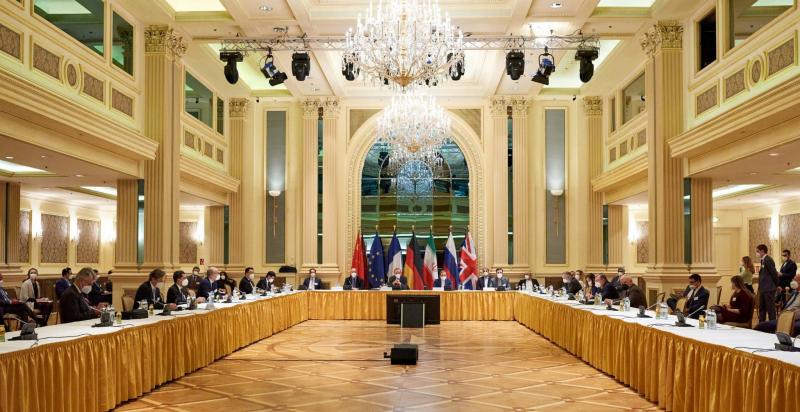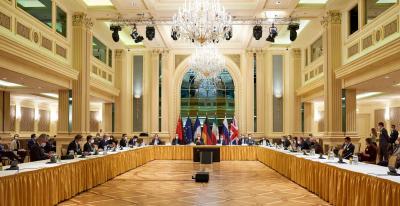The Russian Foreign Ministry expressed concern today, Wednesday, over Iran's plans to produce uranium metal and urged negotiators in Vienna to intensify efforts to reach an agreement. Russian Deputy Foreign Minister Sergey Ryabkov announced Moscow's concern regarding Iran's plans for uranium production, calling on the parties in Vienna to double their efforts to restore the Joint Comprehensive Plan of Action (JCPOA) regarding Iran's nuclear program. Ryabkov emphasized that steps that could complicate the negotiation process raise concern in his country, urging Iran to adhere to the comprehensive safeguards agreement with the International Atomic Energy Agency (IAEA).
For its part, the United States warned Iran against uranium production, stressing the need to stop following a brinkmanship policy and to avoid complicating its return to negotiations aimed at reviving the 2015 nuclear agreement. On Tuesday, Britain, France, and Germany expressed "serious concern" over Iran’s decision to notify the IAEA that it would take steps to produce uranium metal enriched to 20%.
The three countries stated in a joint statement issued by the British Foreign Office: "Iran has no significant civilian need for uranium metal production, which is a key step towards developing a nuclear weapon." They added: "We strongly urge Iran to promptly halt all activities that violate the nuclear agreement and return to the negotiating table in Vienna with a vision that leads to a swift resolution."
The United States also described Iran's decision to produce uranium metal enriched to 20% as an "unfortunate step backward," while emphasizing that the window for diplomacy remains open for both sides to resume their commitments to the 2015 nuclear agreement.
This comes as the IAEA stated on Tuesday that Iran plans to "produce uranium metal with an enrichment level of up to 20%," at a time when negotiations to salvage the international agreement on its nuclear program seem stagnant. Tehran, which has gradually rolled back its commitments since the U.S. withdrew from the agreement in 2018, began producing uranium metal for research purposes in February, a sensitive topic as this material can be used to manufacture nuclear weapons.
Iran has already produced a small amount of unrefined uranium metal this year, which was a violation of the nuclear agreement prohibiting all activities related to uranium metal that could potentially be used to produce the key material for making a nuclear bomb. It now seeks to move to a higher level of enrichment, a "multi-step process" to be carried out at its facility in Isfahan (central Iran), according to the agency's statement. The declared goal is "to manufacture fuel" to supply the research reactor in Tehran.




